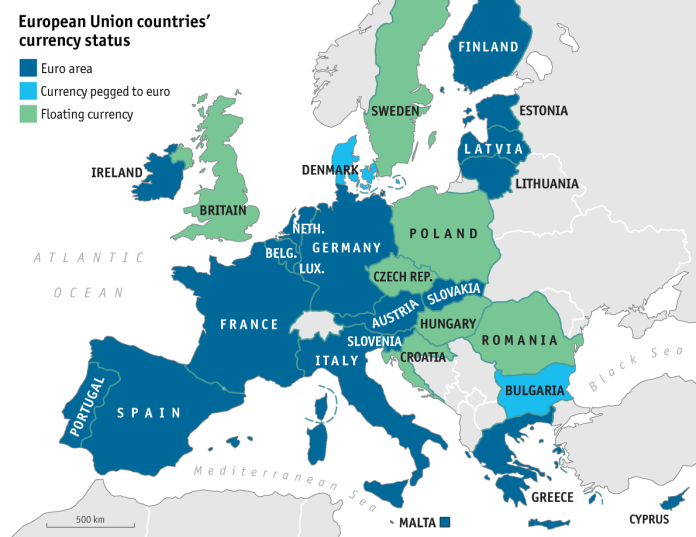



26 OCT 2018
© Malvin Artley
|
Topics: (linked to paragraphs):
|
|
The EU, Scorpio and what it is facing: Following upon our discussion of Scorpio, from the monthly letter, we move on now to a look at the European Union and what it is facing at the moment. Speculation has been rife in forums and media that the EU is doomed to break up, with dire forecasts about the rise of far right political parties and fears of fascism returning to the continent. It is quite fitting for Scorpio, really, looking at the glamours and fears that are aroused in the EU at this point in its short history. Is there any real basis for such fears, though? If so, why? And if not, then what can we realistically expect? We will examine those questions, along with some history, in this short article. From having investigated this over the past months, this is a short exposition. What has emerged in looking at the EU itself and the discussions I have seen about it, there are no pat answers, a lot of wishful thinking – and much of that negative toward the EU – overblown expectations and little knowledge of the Europeans’ views on the matter outside of the EU. So, we’ll start with the astrology of the entity itself and then move on from there. And as usual, without a view of the history and why the EU came into being, no clear picture can be had about where it might be headed.
The European Union: Astrology: The EU came into being at midnight on 1 Nov 1993 in Brussels (chart). For a brief description, we find the Sun in wide conjunctions with Mercury and Jupiter on either side and at the midpoint of the two in the 4th house. That midpoint structure shows the great optimism and openness commonly expressed within the EU. The chart shows Leo rising, conjunct Orcus in the 12th house. This shows the rigidity which the governance of the EU can demonstrate, Orcus being the disciplinarian of the plutinos – the ‘drill instructor’. The Moon is in fertile Taurus, a good placement by sign, but it is opposite a Mars/Pluto conjunction in Scorpio (remembering our rulerships from the Scorpio letter) and square to Saturn, Saturn making the apex of a t-square with the Moon/Mars/Pluto opposition. It is quite a difficult t-square and speaks of hard experience, but powerful drive and energetic creative and mental force when positively employed. It also speaks to suppression of feelings, possible separations, a one-sided emotional life, and an inclination to emotional and mental suffering on the negative side. On the positive side, the EU shows great promise, trials by fire, strong leadership potential and emerging great power. It is a setup that indicates a persistent drive for success, but at considerable cost and with deeply-learned, hard-earned lessons. We won’t go into the esoteric side of the chart with this one, as the dynamics just described are sufficient for our purposes.
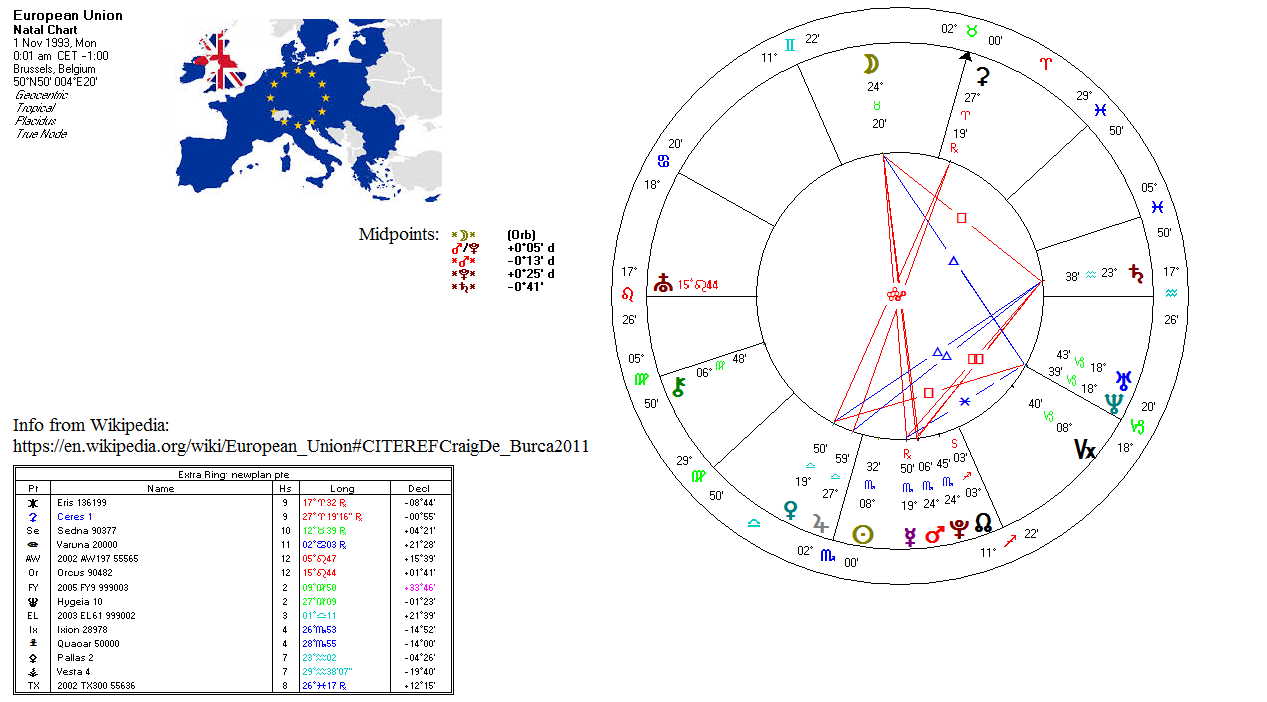
The EU is still a very young union, and it carries the burden of its past in its creation, hidden away in the 12th house of the chart. Being such a young union, it is still going through its growing pains and is yet really still in the process of its formation and growth, still in the process of adding states. The Moon rules that 12th house and is encumbered by the aforementioned t-square. But, therein lies the promise of its eventual liberation and success, should it choose to learn and bend rather than dictate outcomes, as it is trying to do now. The key to this is the European legacy of its past, which until the past century had been largely monarchic and thus dictatorial, and highly nationalistic. In that we have a clue, which we shall address shortly. The EU governance is highly centralized, and had become increasingly divorced from the sentiments of its populace, further indicated by the semi-isolated Sun in the 4th house. So, there are two factors which point to the major problems the EU faces at present, represented by the Ascendant/Orcus conjunction in Leo and the Mars/Pluto opposition to the Moon.
Some basic challenges: The two factors which form the essential problem for the EU are first the WTO and IMF policies based out of Washington that have imposed austerity measures on member states receiving loans, along with ECB policies, and various other measures for financial control. The second is to be found in the following quote:
Mankind is not ready for some super-government, nor can it yet provide the unselfish and trained statesmen that such a government would require. As yet, there are more seeds of danger in this concept than there are of helpfulness. Nevertheless, it is a dream which will some day materialise, after the creation and the functioning of blocs have proved how men should work and live together.[1]
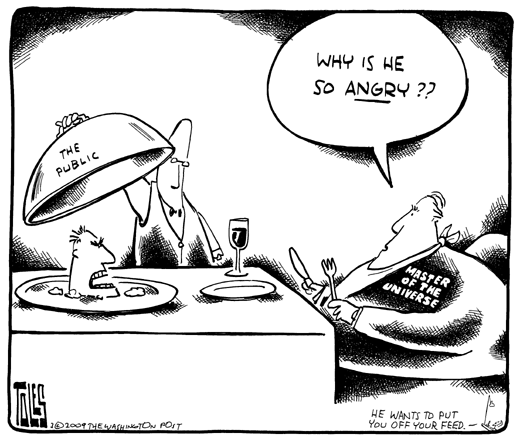 By inference and common sense, we see that such a system lies some distance into the future. The current structure of the EU central governing body is essentially a supranational government, to which the member nations delegate executive power. That immediately raises questions about whether that form of government is before its time and is actually good for the EU. The EU has a rather complex system of government. Its head is indirectly elected, meaning that the people do not directly choose the people who will hold office, but instead entrust other officials, whom they have elected, to choose between candidates for them. But, is that such a foreign concept? Such a system can be seen in the Electoral College in the US, for instance, and it is a very common form of electoral system in the world today. It is also not averse to controversy. Such a system as we see in the US has led to the election of officials against the popular vote of the people, as in the case of Donald Trump, and the accession of Hillary Clinton to the candidacy of the president within the Democratic Party via the super-delegate system and corruption within the Party. Republicans are likewise not immune from such, as seen in the rise of the Tea Party within the Republican Party. These examples aside, the central government of the EU has been labeled as a technocracy of unelected officials by voices critical of EU policy. It is actually more complicated than that, and if we take a closer look, we find that the EU political structure resembles somewhat the governmental structure of the US.
By inference and common sense, we see that such a system lies some distance into the future. The current structure of the EU central governing body is essentially a supranational government, to which the member nations delegate executive power. That immediately raises questions about whether that form of government is before its time and is actually good for the EU. The EU has a rather complex system of government. Its head is indirectly elected, meaning that the people do not directly choose the people who will hold office, but instead entrust other officials, whom they have elected, to choose between candidates for them. But, is that such a foreign concept? Such a system can be seen in the Electoral College in the US, for instance, and it is a very common form of electoral system in the world today. It is also not averse to controversy. Such a system as we see in the US has led to the election of officials against the popular vote of the people, as in the case of Donald Trump, and the accession of Hillary Clinton to the candidacy of the president within the Democratic Party via the super-delegate system and corruption within the Party. Republicans are likewise not immune from such, as seen in the rise of the Tea Party within the Republican Party. These examples aside, the central government of the EU has been labeled as a technocracy of unelected officials by voices critical of EU policy. It is actually more complicated than that, and if we take a closer look, we find that the EU political structure resembles somewhat the governmental structure of the US.
Returning to the astrology, the Mars/Pluto conjunction can be especially hard and cruel when it suits the purpose, and the tendency for EU leadership is to proceed in a brutal manner at times, as we saw with the Greek financial crisis. Let’s hold a thought in mind as we go along: the Taurus/Scorpio axis is the prime ‘money axis’ in the natural horoscope and deals primarily with the banking sector in mundane astrology, as well as resources. The EU leadership is trying to do with Italy what it did with Greece, also, and so long as it tries to do so with London things will go badly with Brexit. It is difficult to move that Taurus Moon. Fortunately for the Union, it will be facing considerable trials and testing over the next few years, especially after the turn of the decade, hopefully overcoming its past legacy instead of splitting up, and seeing a more moderated and cooperative approach rather than ruling by pronouncement and rules-based order. I definitely see the possibilities, and things can change very quickly and unexpectedly, as I am seeing in the next few years. We’ll look at the future later, but for now, we need historical context to see where things might be headed.
The EU: Solely European?: As mentioned, there is a legacy that is hidden in EU policy which has influenced its creation. Everything is not as it seems with the EU. The EU was not solely a European initiative, as Europeans would like to believe and as we have been told in the US. It was also an American project, covertly funded and aided by the CIA. And as disturbing as it may sound, there is also a plan that was put forward by Nazi Germany in 1942 that bears striking similarities to the financial union we see in the Eurozone, noting that is a separate entity from the EU, though integrated with it. Before you close the computer and roll your eyes, thinking this to be some sort of conspiracy theory, you may want to read on, because what is happening in Europe now, little as we might realize it, is a disentanglement from the US and from its past legacies. And also strange as it might sound, we are being helped by the likes of Donald Trump and the populist leaders within the EU itself, in the sense that they are serving to expose what needs to change. There is no longer any gloss or nicety attached to US/EU relations. So, to get to the essence of what constitutes the EU and European identity we need to dig beneath and see how it all came to pass.
.jpg) Some History: Let’s set the scene for what has evolved to become our current situation in Europe, then. It is 1947, just after WWII. European cities still lie largely in ruins, devastated by the war. Privation is severe, with millions homeless. The European economies had collapsed. The old European colonial powers were in the process of divesting themselves of their empires out of necessity. The Mafia had been reborn in southern Italy with American help. Germany had been divvied up between the Allies. The Marshall plan had yet to be implemented by the US to rebuild Western Europe. The CIA had just been created in the US. The Soviets were consolidating their control over Eastern Europe. There was almost a mania about communism in the US, certainly so in the Beltway, a palpable fear of the spread of the same. The Soviets were busy setting up their buffer states in the east of Europe to ensure they would not be invaded from the West yet again, and spreading their ideology at the same time. NATO was to come into being two years later as a result.
Some History: Let’s set the scene for what has evolved to become our current situation in Europe, then. It is 1947, just after WWII. European cities still lie largely in ruins, devastated by the war. Privation is severe, with millions homeless. The European economies had collapsed. The old European colonial powers were in the process of divesting themselves of their empires out of necessity. The Mafia had been reborn in southern Italy with American help. Germany had been divvied up between the Allies. The Marshall plan had yet to be implemented by the US to rebuild Western Europe. The CIA had just been created in the US. The Soviets were consolidating their control over Eastern Europe. There was almost a mania about communism in the US, certainly so in the Beltway, a palpable fear of the spread of the same. The Soviets were busy setting up their buffer states in the east of Europe to ensure they would not be invaded from the West yet again, and spreading their ideology at the same time. NATO was to come into being two years later as a result.
The Cold War started in 1947 and the Iron Curtain descended across Central Europe. Large populations suddenly found themselves in strange or hostile territories because of re-drawn borders and because of the large numbers of displaced persons across Europe. There was widespread rape and violent crime, committed by all sides by the occupying forces during and immediately after the war. The USSR was devastated by the war, too, having lost 27 million people, and the western part of its union, its main industrial base, lay in ruins. The Soviets and the Americans ‘conscripted’ prominent Nazi engineers, scientists and technicians for work in advancing their technologies. For the Americans this was known later as Operation Paperclip. For the Soviets it was Operation Osoaviakhim. The Cold War was instrumental in the creation of the EU, as the idea of the EU was originally conceived as a hedge against the Soviets in Europe.
Because of its industrial and military might, plus the fact that the US mainland remained untouched by the war, the US controlled an astounding 50% of the world’s wealth, either directly or through influence. The US had the bomb and they could have destroyed the Soviets had they wanted to. The Russians were rightly alarmed at what they were seeing taking place in Europe. The thing that stopped them from doing so? – the need for a permanent enemy, plus the fact that the world was weary of war. The Russians were rightly alarmed at what they were seeing taking place in Europe. So, for the years immediately after the war, the Americans were in the catbird seat when it came to the Western world. How to keep control of all that had been gained, then? Is a picture beginning to emerge?
Have you ever heard of The American Committee on United Europe, the outline for which was formulated by William Donovan and Allen Dulles of the CIA? Not many people have, unless you were alive at the time or have studied post-WWII history. It was founded in 1948, with the expressed purpose of setting up the political unification of Europe, American style – a ‘United States of Europe’. This ran in parallel and sometimes in concert with the work of Europeans, most notably Jean Monnet. More on him in a bit. At the time this ‘US of E’ was welcomed by many Europeans, seeking to escape the intense nationalism that had led to the devastation of two world wars on the European continent, the type of nationalism we see reemerging with populist politicians. A united Europe – sort of a ‘UN of Europe’ – in itself was a good idea. But as with any good idea, there are usually more opportunistic forces and factions who seek to bend that toward their own ends. And for the US, the main factors that caused an American agenda toward a unified Europe were the fear of the spread of communism, the desire to exert control over European banking, industry and such, and to set up a bloc of allied states that were friendly to US interests. The whole initiative by the US was treated as a covert operation throughout the ‘50s and ‘60s. Conspiracy theory? The documented evidence from declassified CIA files tells the tale. For more information on CIA involvement with the EU, have a look here, here, here, here, here, and here, for a start. We’ll return to this in a moment.
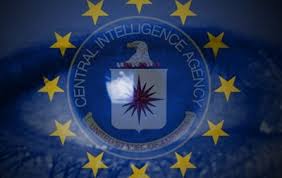 The United States of Europe: The idea of a ‘united states of Europe’ was not a new idea, however. There were a few ideas in Europe and the US floating around with forward-thinking people about some sort of European union as early as the 17th century, but there was not the sort of critical mass or major crisis needed to coalesce those states into a greater union then. Their distinctive separative nationalistic tendencies prevented it. Those same nationalistic tendencies are resurfacing, being masked over by calls for sovereignty, protecting borders and so forth. It was those tendencies, entrenched into various governments, that led to the horrors of the World War. The ideas being floated in the past for a united Europe, though, pointed to a common theme in general – an end to war on the continent. Europe had been a battleground for centuries, and Europeans had had enough of war. Therein we find the essence of the EU: a peaceful coexistence of European states bound by a common goal of cooperation instead of competition and constant friction, as was seen in the centuries preceding the present one.
The United States of Europe: The idea of a ‘united states of Europe’ was not a new idea, however. There were a few ideas in Europe and the US floating around with forward-thinking people about some sort of European union as early as the 17th century, but there was not the sort of critical mass or major crisis needed to coalesce those states into a greater union then. Their distinctive separative nationalistic tendencies prevented it. Those same nationalistic tendencies are resurfacing, being masked over by calls for sovereignty, protecting borders and so forth. It was those tendencies, entrenched into various governments, that led to the horrors of the World War. The ideas being floated in the past for a united Europe, though, pointed to a common theme in general – an end to war on the continent. Europe had been a battleground for centuries, and Europeans had had enough of war. Therein we find the essence of the EU: a peaceful coexistence of European states bound by a common goal of cooperation instead of competition and constant friction, as was seen in the centuries preceding the present one.
Nazis?: But there was another idea for a European Union, and it was conceived at a conference in Berlin in 1942, when the Nazis thought they were going to win the war. More specifically, it was an idea for a unified currency and financial trading system between European states – a European economic union – tied of course to the Deutschmark and control of the German central bank. Without the Nazi emphasis, this is suspiciously like the financial situation we see in Europe today (8:05 – 9:40) with the Eurozone. And the study? It was called “The Europäische Wirtschaftsgemeinschaft”, or “The European Economic Community”. We won’t go through all the details here. The document is clear enough. (It’s translated.) So, on 1 Jan 1958, as stipulated in the Treaty of Rome, we saw the creation of the European Economic Community, coming into effect then, primarily between the ‘Big Three’ – Germany, France and Italy – and also the Dutch, Belgians and Luxembourgers. This would later be incorporated in the EU in 1993 and then become the Eurozone on 1 Jan 1999.
Monnet and misinformation: This Nazi plan was cited in the Leave campaign of Brexit. Other references were also made to Nazis by the Leavers as well. This was all nonsense, meant to stir up public opinion against the EU. Now, it may well be that the Nazi collaborators in the US transmitted some of the information about the Nazi plan to the Americans. The CIA would certainly have known about it. But, as we will see in a bit, this Nazi plan was not an instrumental part of planning for the EU, at least not in Europe. With Brexit, it was a perfect example of misinformation and dog-whistle politics. Further, there was a quote that was used to drive home the warning against a European super-state, widely attributed to Jean Monnet, one of the ‘Fathers of the European Union’, as follows:
Europe’s nations should be guided towards the super-state without their people understanding what is happening. This can be accomplished by successive steps, each disguised as having an economic purpose, but which will eventually and irreversibly lead to federation.
Problem is, he never said it, at least as far as I have been able to ascertain further. (See also here) Apparently, this too was copied by another conspiracy theorist in order to try to discredit Monnet and the EU. The cited quote was supposedly from a ‘letter to a friend’, dated 30 Apr 1952, whereas in fact, Monnet gave an address to the National Press Club in the US on that date. In that address, he was heard to state:
It is of universal importance that Europe can live by its own means and in security, that it be peaceful and able to continue making its great contribution to civilization. The path to all its goals is unification. A federated Europe is indispensable to the security and peace of the free world . As long as Europe remains fragmented, it will remain weak and will be a constant source of conflict. In modern times, conflicts inevitably spread to the whole world.
Unification will allow Europe to intensify the development of its resources. It will thus be able, when the time comes, to face the needs of its inhabitants and to take its share in the expenses of the common defense, without having to ask you [meaning the United States] to maintain your contribution. The unification of Europe has a scope for civilization that goes beyond security and peace. Europe is at the origin of the progress we all enjoy and Europeans are today able to contribute to the development of civilization, through their creative spirit, a contribution as great as in the past. But to allow this creative spirit to flourish again, we must harmonize our institutions and our economy with modern times. It is by unifying Europe that we will succeed.
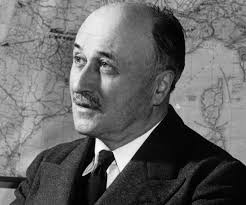 There is nothing in that address that speaks of fooling the populace, or of a super-state. We might infer the latter, but is that really the case? He talks of a federation of European states, but that is not a super-state. The US, Brazil, Russia and Australia are all federations, for instance. What he was actually advocating was first, an economic bloc in Western Europe, of a type mentioned elsewhere. Monnet was noted as saying in other correspondence and in his memoirs later that there should be a super-state, but he did so with a caveat: That it should only concern itself with economics, and then only toward contributing toward prosperity for all of Europe, not some super-state.[2] That thinking led to the Treaty of Lisbon. It is that treaty, not the formation of the EU itself, that has led to much of the fuss we are hearing now. But first, we need to consider Monnet.
There is nothing in that address that speaks of fooling the populace, or of a super-state. We might infer the latter, but is that really the case? He talks of a federation of European states, but that is not a super-state. The US, Brazil, Russia and Australia are all federations, for instance. What he was actually advocating was first, an economic bloc in Western Europe, of a type mentioned elsewhere. Monnet was noted as saying in other correspondence and in his memoirs later that there should be a super-state, but he did so with a caveat: That it should only concern itself with economics, and then only toward contributing toward prosperity for all of Europe, not some super-state.[2] That thinking led to the Treaty of Lisbon. It is that treaty, not the formation of the EU itself, that has led to much of the fuss we are hearing now. But first, we need to consider Monnet.
Just who was Jean Monnet? He has been called the ‘Father of the EU’. It is worth reading Monnet’s memoirs if one really wants to get into the minds behind the European Union – the truth behind the EU and not all the conspiracies. Monnet was French, but was also described as ‘a well-connected pragmatic internationalist’, having traveled widely, and he was for the most part apolitical, in the sense that he strove for unity instead of national interest or political affiliation. He had no interest in promoting his own ego. He was never elected to office and preferred to work behind the scenes, primarily in the US and Europe. If one wanted to get a bit more esoteric, he was more than likely a disciple in the political field, although his training was in political economics.
There is a key piece to the story of the EU that I never hear mentioned, and it relates to nationalism, international rivalries and Monnet. It involves the Monnet Plan at the start, then the Ruhr Agreement, the latter which placed control of the coal resources in the Ruhr area of Germany under the control of the Allies in 1949. The Monnet Plan which preceded it was aimed toward rebuilding and strengthening France after the war and weakening Germany, keeping it from re-militarizing. It was one of Monnet’s biggest errors in judgement, which he later rectified, along with Schuman. The reason it was an error was because those two agreements led to increasing tensions between France and Germany over time, to the point where they were once again facing violent confrontation. In order to avoid this, Monnet via Schuman, the latter who was then French Foreign Minister, proposed the creation of the European Coal and Steel Community, the precursor to the EU. The states that formed this community are the core states of the EU.
Prior to this, Monnet is not noted as having any notions of a greater European federation. We see from this, making a long story very short, that the basis of the EU was to avoid conflicts between European states by forming a community of European states, but in Western Europe. This latter point will be important a bit later in this piece. Monnet’s story is quite fascinating in many respects, having spanned three wars – WWI, WWII and the Cold War. His attitude toward Europe could best be summarized in a note he sent to the Committee of National Liberation in Algiers on August 5, 1943:
There will be no peace in Europe if States re-establish themselves on the basis of national sovereignty, with all that this implies by way of prestige policies and economic protectionism. If the countries of Europe once more protect themselves against each other, it will once more be necessary to build up vast armies. Some countries, under the future peace treaty, will be able to do so; to others it will be forbidden. We experienced such discrimination in 1919; [re: League of Nations] we know the results. Alliances will be concluded between European countries: we know how much they are worth. Social reforms will be prevented or delayed by the pressure of military expenditure. Europe will be reborn yet again under the shadow of fear.
The countries of Europe are too small to give their peoples the prosperity that is now attainable and therefore necessary. They need wider markets…To enjoy the prosperity and social progress that are essential, the States of Europe must form a federation or a ‘European entity’ which will make them a single economic unit. The British, the Americans, and the Russians have worlds of their own into which they can temporarily withdraw. France is bound up in Europe. She cannot escape. (Memoirs, p. 222)
Thus, we see that the basic premise of the EU was focused upon economics originally, thereafter gradually growing into its current federated form. It was not, therefore, conceived as a super-state from the outset. We can call the EU a super-state, and some people do, but in that vein we can also call nations like the US super-states.
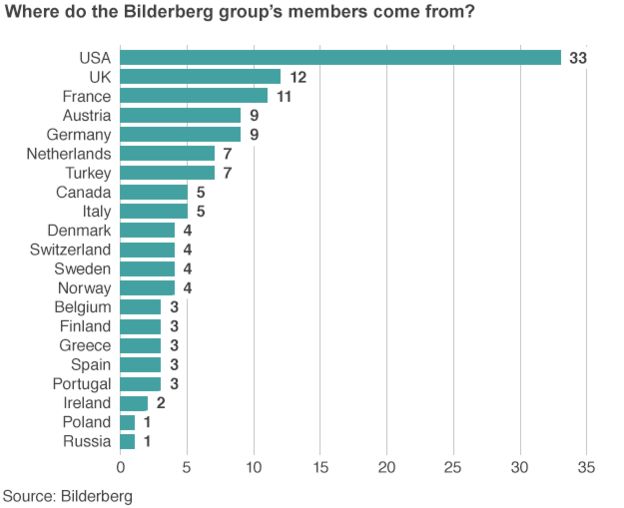 Conspiracies behind the scenes?: What we see with the current EU construct has that idea of peaceful cooperation inherent, but it has a hidden guiding hand, and the exerted control is primarily financial, at least at the moment, with NATO as an added ‘emphasis’. Why, for instance, do we see the recent rise of nationalism in the EU? Why do we see it in the US? Or in other parts of the world? It is because people feel disenfranchised, shut out from having a say in their own destinies, seeing control being placed more and more in the hands of a few powerful people and corporate interests, while their own living standards dwindle and they have less and less to leave to their descendants. It is an age-old cyclic dynamic, and in the past it has led to wars and revolution. In other words, the problems we see in the EU are universal, and not peculiar to Europeans. People these days know that governments no longer work in their interests. They see the corruption. People are not blind. This is why we see the election of people like Trump, Salvini and the like, and movements like Brexit and so forth, with leaders proclaiming that they will be able or know how to fix the broken systems. But these leaders will not solve the problems. The problem is primarily structural and can only be changed by an informed and viable public, or perhaps through revolution. Brexit, Trump and the others are symptoms of systems that increasingly serve the self-interests of the few – the unelected oligarchic technocracy. However, people like Trump and movements like Brexit serve a useful purpose so long as things do not get out of hand, in that they put ‘the system’ on notice because of the public discontent they represent.
Conspiracies behind the scenes?: What we see with the current EU construct has that idea of peaceful cooperation inherent, but it has a hidden guiding hand, and the exerted control is primarily financial, at least at the moment, with NATO as an added ‘emphasis’. Why, for instance, do we see the recent rise of nationalism in the EU? Why do we see it in the US? Or in other parts of the world? It is because people feel disenfranchised, shut out from having a say in their own destinies, seeing control being placed more and more in the hands of a few powerful people and corporate interests, while their own living standards dwindle and they have less and less to leave to their descendants. It is an age-old cyclic dynamic, and in the past it has led to wars and revolution. In other words, the problems we see in the EU are universal, and not peculiar to Europeans. People these days know that governments no longer work in their interests. They see the corruption. People are not blind. This is why we see the election of people like Trump, Salvini and the like, and movements like Brexit and so forth, with leaders proclaiming that they will be able or know how to fix the broken systems. But these leaders will not solve the problems. The problem is primarily structural and can only be changed by an informed and viable public, or perhaps through revolution. Brexit, Trump and the others are symptoms of systems that increasingly serve the self-interests of the few – the unelected oligarchic technocracy. However, people like Trump and movements like Brexit serve a useful purpose so long as things do not get out of hand, in that they put ‘the system’ on notice because of the public discontent they represent.
The main problem that has led to such widespread discontent is primarily economic, and it has steadily arisen since the 1970s with the step-by-step institutionalization of deregulated financial markets and neoliberal economics, of the type we see throughout the West. That form of entrenched economics has led to the bubble/collapse cycle we see now and which was most evident in the 2008 collapse, from which Europe has yet to really recover. Of particular interest to note is that collapse occurred while negotiations for the Treaty of Lisbon were taking place. Now, there’s a piece of conspiracy one can latch onto, if one is so inclined. The collapse took place because of the housing market in the US, but quickly spread worldwide. But it came at the time the European supranational state was instituted, with the Schengen agreement, and shortly after that we saw the mass migration of economic migrants from Eastern Europe and terrorism refugees from sub-Saharan Africa and then from Syria. If we didn’t know better, we might say it was all engineered to scuttle the greater union of the EU. These factors have certainly been testing of the union.
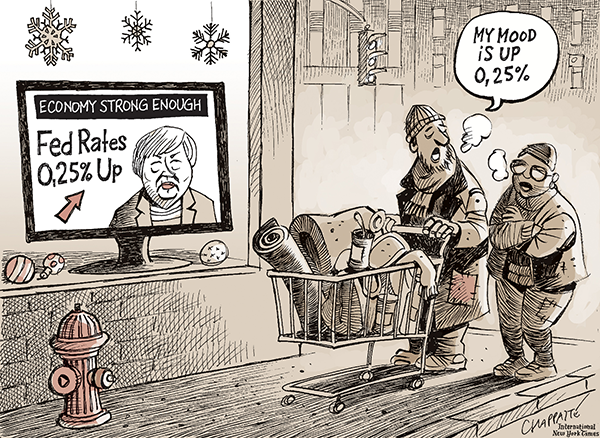 The thing to keep in mind is that if people have enough to live on and to progress a little they stay pretty well quiet and daily life and government goes on without too much trouble. Economics, more than any other factor, determines politics, and the outcome of elections. In times of difficulty there are always politicians who promise the moon, stability, economic prosperity, a return to ‘greatness’, whatever that is, soup in every pot, etc., only to disappoint later because in the end they are unable to or do not wish to change the economic system. And such politicians often tend toward fascism and erosion of civil liberties. And this brings us to the control that the US is able to exert over Europe, and why Europeans are starting to say, “Enough!”, starting with the EU itself and leading to the real culprit, which is economic policy. For all the troubles we see with Europe, a ray of light is starting to shine through, and we started to see it in 2016, especially, to be accelerated by Trump the following year.
The thing to keep in mind is that if people have enough to live on and to progress a little they stay pretty well quiet and daily life and government goes on without too much trouble. Economics, more than any other factor, determines politics, and the outcome of elections. In times of difficulty there are always politicians who promise the moon, stability, economic prosperity, a return to ‘greatness’, whatever that is, soup in every pot, etc., only to disappoint later because in the end they are unable to or do not wish to change the economic system. And such politicians often tend toward fascism and erosion of civil liberties. And this brings us to the control that the US is able to exert over Europe, and why Europeans are starting to say, “Enough!”, starting with the EU itself and leading to the real culprit, which is economic policy. For all the troubles we see with Europe, a ray of light is starting to shine through, and we started to see it in 2016, especially, to be accelerated by Trump the following year.
There was something else that happened at the end of WWII, and that was the creation of the World Bank and the IMF, both based in Washington. This is not to blame Washington for Europe’s woes. Far from it. But, since WWII the US has wielded more clout in international monetary affairs than any other nation. The reason these two organizations are mentioned is because both of them operate under what is known as the Washington Consensus – stabilization, privatization, liberalization – when it comes to loans to struggling economies, like Greece, for instance. This scheme was concocted in 1989 in the US and applied to Latin American countries who were struggling under economic pressures then. In general it tends to eventually pick economies up, but in the process the state’s assets are sold off, trade barriers are done away with and general austerity measures are put in place, like stripping retirement funds, imposing also a heavy debt load from the loans. Essentially, then, IMF and World Bank policy, without stating it and perhaps without meaning to do so, impose debt slavery on nations that apply for loans through those organizations. There have been two exceptions to the rule of this Washington Consensus – India and China – and they have been successes. They have done so because there has been no privatization of their assets, they have tariffs and they have imposed state control of the central banks. In China this is called ‘neoliberal economics with Chinese characteristics’. Perhaps Europeans need their version of that. The IMF system was tried on Russians during the ‘90s and they eventually rejected it, with the effect that the Russian economy is rebounding, however slowly under sanctions, and much to the consternation of policymakers in Washington.
Perhaps the biggest controlling factor economically that the US has over Europe, though, is because of the dominance of the dollar as the premier world reserve currency and the resultant control over the SWIFT financial transfer system. This system converts and enables all financial transactions between banks worldwide and is tied to the dollar. So, if there is some ‘rogue’ state or entity that the US or EU doesn’t like, they are sanctioned by being cut off from the SWIFT system, resulting in economic collapse for that state or entity, as they are unable to trade with other nations. Trump has recently threatened to do this with Iran. This is how the various sanction regimes are imposed on nations like Iran, Russia, North Korea and the like. That is changing, though. Since the US unilaterally pulled out of the JCPOA, the EU has moved to set up an alternative payment system for companies who want to do business with Iran, divorced from SWIFT. This is a direct snub and slap in the face to Washington and is likely to be the start of many such systems. In addition, the Russians have made a deal with Iran to have Iran’s crude oil shipped across the Caspian Sea to Russia, where it will be refined and sold on to other nations without the US being able to trace it. And we notice since those measures have been moved upon, Trump has walked back on his threat to cut Iran off from the SWIFT system. There is a message there for Europe and the world at large.
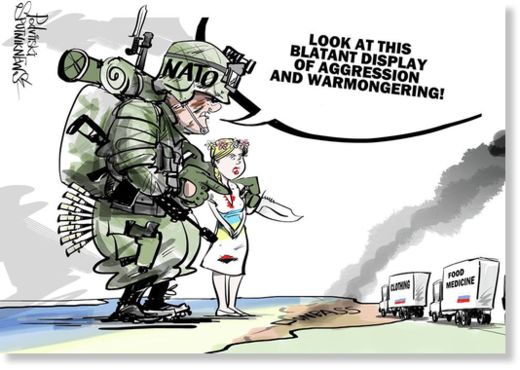 And then there is NATO, speaking of guiding hands behind the scenes, the need for which is now seriously in question after the fall of the Soviet Union. NATO is another tool of control over the European continent by the US and is currently being used to push back against Russia. This is primarily an American initiative. There is a link here between the original setup of the European Community, NATO and the use of the EU as a military base, client for military hardware and for what would otherwise be called a protection racket. Apparently, the US and some EU member states still need Russia as an enemy. We have addressed this elsewhere, so will not go back over it. Suffice it to say, Europe is not under an imminent, or even distant military threat by anyone, let alone Russia. Many Europeans recognize this and want friendlier relations with Russia, based in business. For their part, the Russians say they want a strong and viable EU. It makes for a much better business partnership. But this goes back to our Scorpio conditioning, and it is very difficult for many people to get their heads around that fact that Russians are no longer seeking to spread communism throughout the world. It is not a communist state any longer. Now they are just a convenient ‘enemy’, good for arms sales and for keeping allies on track and people frightened.
And then there is NATO, speaking of guiding hands behind the scenes, the need for which is now seriously in question after the fall of the Soviet Union. NATO is another tool of control over the European continent by the US and is currently being used to push back against Russia. This is primarily an American initiative. There is a link here between the original setup of the European Community, NATO and the use of the EU as a military base, client for military hardware and for what would otherwise be called a protection racket. Apparently, the US and some EU member states still need Russia as an enemy. We have addressed this elsewhere, so will not go back over it. Suffice it to say, Europe is not under an imminent, or even distant military threat by anyone, let alone Russia. Many Europeans recognize this and want friendlier relations with Russia, based in business. For their part, the Russians say they want a strong and viable EU. It makes for a much better business partnership. But this goes back to our Scorpio conditioning, and it is very difficult for many people to get their heads around that fact that Russians are no longer seeking to spread communism throughout the world. It is not a communist state any longer. Now they are just a convenient ‘enemy’, good for arms sales and for keeping allies on track and people frightened.
There is one thing in particular we should note regarding NATO. The abrogation of all the nuclear treaties by the US are a good example of trying to keep Europe in line, by scaring the pants off them and citing the ‘need’ for US troops and missile ‘defense’ systems throughout Europe. Trump’s proposed abrogation of the INF Treaty is about that, because it primarily affects Europe. (See also here and here.) But, such foolishness – how else would one describe it? – will only serve to weaken the alliances between Americans and Europeans. The reason given for pulling out of the INF is because China, Iran and North Korea are in the stages of developing hypersonic missiles. However, the INF treaty covers missiles with a range of between 500 and 5500 km, and neither Iran, China nor the North Koreans can reach the US mainland with such missiles. That leaves Russia, with NATO missiles and troops right on their borders, as well as drones, the latter being the real concern of the Russians. If there were to be such an exchange between the US and Russia, Italy, Germany and Poland would be in the crosshairs.
And, to make matters worse, the European Parliament, under NATO direction/pressure, is pushing Ukraine toward direct confrontation with Russia with the passage of the Azov Sea Resolution. We won’t go into that here, but these moves really should cause Europeans to question their relationship with the US, and a closer look at Ukraine with its neo-Nazi factions in government. The Russians have been very clear. If they are attacked, the Russians will respond with full force and without pity. They feel very threatened by NATO expansionism and the neocons in Washington have no feeling whatsoever[3] for the lives of innocents in any nation. The situation that is developing is the most dangerous it has been since the Cuban missile crisis. The Russians are taking this very seriously and have as much stated that they would have to be ready to counter any such threat by the middle of next year (2019). And that brings us to the next topic: election interference.
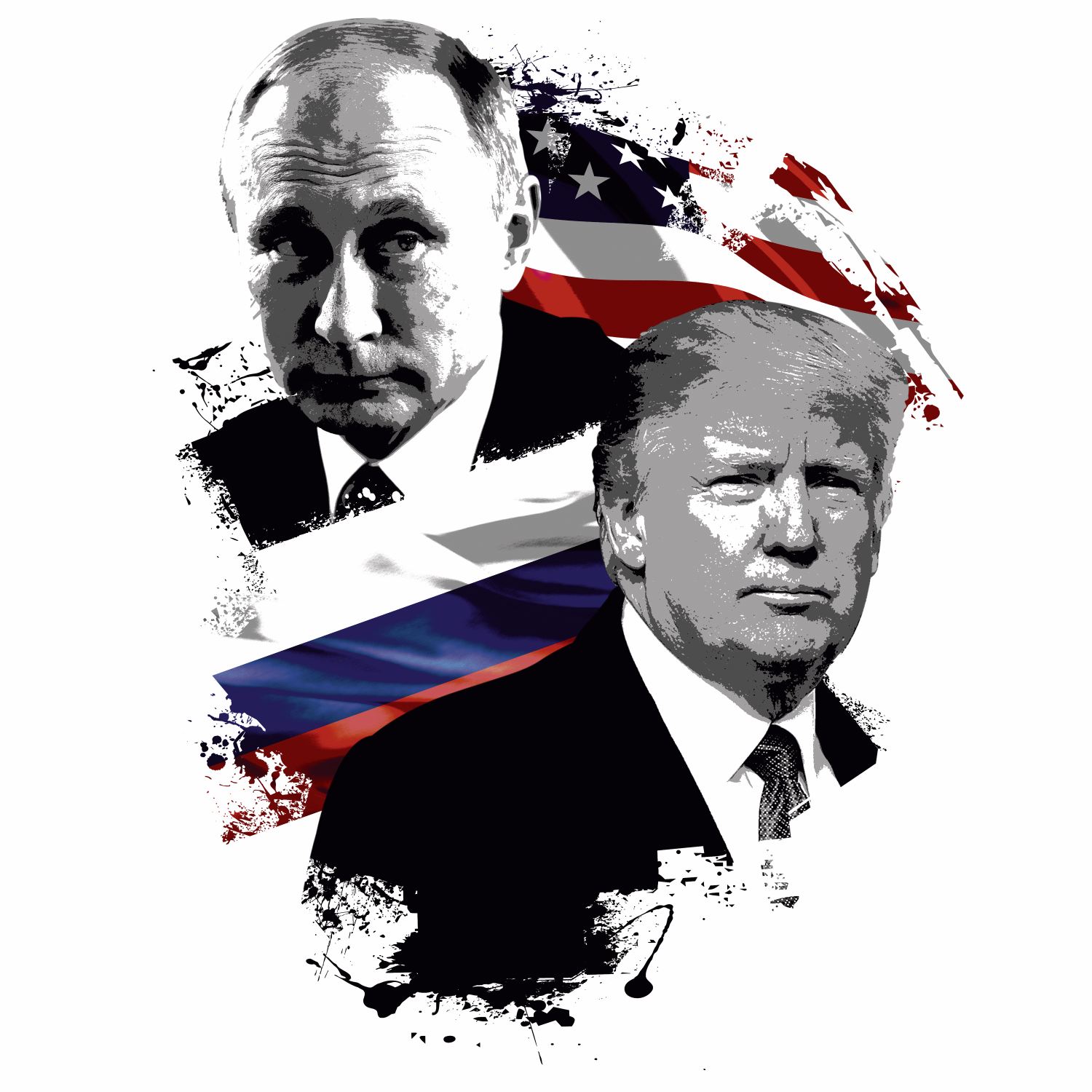 Election interference: Much has been made of suspected Russian interference in elections in the US and Europe, with constant warnings about it in mainstream news. Much has also been made of Putin cozying up to nationalist candidates in Europe, many of whom are anti-EU, with media seizing on it to make the point that Russians want to break up the EU. But is there any truth to it? The thing that is left out of the latter narrative is that those candidates also want friendlier relations with Russia. But then, Russia says it wants to see a strong and prosperous EU. It is all very convenient. However, there is one nation that has routinely interfered in European elections and politics for decades. Some of the following names might ring a bell: ‘Operation Gladio’, ‘Absalon’, Aldo Moro…and there are many more. The culprit behind these names has been a trusted friend and ally all that time. But this same entity is attempting to interfere in European politics yet again, in the form of Steve Bannon.
Election interference: Much has been made of suspected Russian interference in elections in the US and Europe, with constant warnings about it in mainstream news. Much has also been made of Putin cozying up to nationalist candidates in Europe, many of whom are anti-EU, with media seizing on it to make the point that Russians want to break up the EU. But is there any truth to it? The thing that is left out of the latter narrative is that those candidates also want friendlier relations with Russia. But then, Russia says it wants to see a strong and prosperous EU. It is all very convenient. However, there is one nation that has routinely interfered in European elections and politics for decades. Some of the following names might ring a bell: ‘Operation Gladio’, ‘Absalon’, Aldo Moro…and there are many more. The culprit behind these names has been a trusted friend and ally all that time. But this same entity is attempting to interfere in European politics yet again, in the form of Steve Bannon.
Before we address Steve Bannon and the populists in Europe, we might want to ask why such people would want agitate for leaving the EU. Well, because, “We want to be the voice of the ordinary guys who feel betrayed by the elites.’’, according to one of the populist leaders in Europe. Sounds a lot like Trump and his ‘swamp’. Thinking back on the Scorpio discussion from earlier in this piece, when we hear statements like this, what we hear is ‘us against them’, and that the troubles, in any nation really, are always someone else’s fault. We didn’t really choose this state of affairs, did we? And the further away from the nation the agitator is, the better. China and Russia, or Brussels, are good picks for that. It goes to the Scorpio dynamic of psychological projection, which Pluto rules. How to address the problem, then? If we have troubles in our families, we don’t leave the family to solve them, except in the most extreme cases. Europe has troubles, yes, family troubles, money troubles, leadership problems, and so on. But if there is value in any group it is worth hashing it out amongst ourselves, and outside influences can go where they belong – outside – until we decide for ourselves.
Meddlesome Uncles: To be more pointed about the way in which Washington interferes in the affairs of Europe, Europeans recently got a bit of friendly advice from the Atlantic Council, an American think tank. The American Assistant Secretary of State for European and Eurasian Affairs, Wess Mitchell, speaking at the Council, told America’s European partners what was acceptable to the US and what was not, mostly what was not. For a summary, it is not acceptable for Western Europe to buy gas and energy from Russia, especially because the US protects Europe from the  Russians. (Really?) Instead, they are obliged to buy their gas from the US (at elevated prices). In the same vein, they cannot enrich themselves by buying gas and conducting trade with Iran, because the US protects Europe from Iran’s ballistic missiles. (Again, really?) The last time we checked, Iran was complying with its obligations. Europeans also need to be wary of the Chinese ‘sneaking up on them’. (Yes, one must be wary of those scheming Chinese). Central Europeans need to reject projects like the Turkstream II gas pipeline. Again, those pesky Russians. In other words, Uncle (Sam) knows best. Europeans cannot decide what is in their own best interests, not seeing the threats in their very faces, and they need to do as they are told. And we are told it is the Russians who are interfering in European affairs and elections. The basis of Mitchell’s comments are economic in nature and relate in no way to defense priorities.
Russians. (Really?) Instead, they are obliged to buy their gas from the US (at elevated prices). In the same vein, they cannot enrich themselves by buying gas and conducting trade with Iran, because the US protects Europe from Iran’s ballistic missiles. (Again, really?) The last time we checked, Iran was complying with its obligations. Europeans also need to be wary of the Chinese ‘sneaking up on them’. (Yes, one must be wary of those scheming Chinese). Central Europeans need to reject projects like the Turkstream II gas pipeline. Again, those pesky Russians. In other words, Uncle (Sam) knows best. Europeans cannot decide what is in their own best interests, not seeing the threats in their very faces, and they need to do as they are told. And we are told it is the Russians who are interfering in European affairs and elections. The basis of Mitchell’s comments are economic in nature and relate in no way to defense priorities.
The EU has parliamentary elections in May of next year. If you are a European reading this, watch for ads that are anti-EU and the like, or ads meant to scare Europeans into line, to appear in social media platforms and look for the emotional hooks. Bankers and economists will be out in force, too, shouting the dangers of de-globalization and so forth. There will be more subtle messages, too, about the ‘fatal flaws of supranational governments’ and the like, warnings about secret elites behind everything...on and on. We saw this sort of thing with the Brexit vote. Social media is now a favored platform for swaying public opinion in campaigns, as we saw with the Trump campaign, the Brexit vote and the recent Brazilian election. You will see the handiwork of the likes of Bannon and his methods there, and also of the likes of the Atlantic Council.
There appear to be two factions In the US who seek to influence the EU. One, with Bannon as its representative, wants to see the power structure of the EU either weakened or broken, with the dismantling of the EU as a final result. There is a short video from CNN which illustrates this attitude most clearly. But, the last line in the video states what is obviously the truth for Europeans – European leaders want to set their own agendas apart from US policy. Bannon and his like-minded people seek to divide Europe by stirring the old nationalistic tendencies, the very thing Monnet warned against – the very thing that drove the Brexit debates. The other faction seeks to keep the EU intact, but still under the control of the US, evidenced by the recent statements made at the Atlantic Council. This faction still wants the EU to remain a vassal or outpost of US interests. Neither one is in the best interests of the citizens of the EU. NATO is the face of the latter camp, and Trump in his visit to the NATO summit earlier in the year made that point abundantly clear.
Militarily, there is no reason for NATO to still be in existence, except in the eyes of the Americans. Far more can be done for European security through economic ties and peaceful trade, especially with Russia, than through military action. Monnet, were he still alive, would be advocating exactly that. The Russian military threat is a manufactured one, aimed at arms sales from the US to Europe, and also aimed at crippling the growing strength of Russian business and enterprise. But, most of Russia in terms of population is European, and with Russia forming the eastern-most part of the European continent. It is a natural trading partner with the other European nations. What Washington fears more than any kind of military confrontation with Russia is for Russia to replace the US to a large degree as a European trading partner. This is the real reason for Washington’s sanctions against Russia. Then there is the factor of US military bases in Europe, which adds greatly to local economies, and from their side the Europeans do not wish to lose that income, especially since the 2008 financial collapse. It is a long list. So, old fears and financial clout make for a potent source of influence by the US in European affairs.
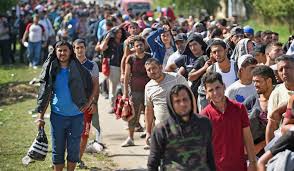 Immigrants: One of the main sticking points Europeans have with Schengen and open borders, as ensconced in the Treaty of Lisbon, is immigration. This is used as a favorite tool for swaying public opinion among populist candidates and leaders. But is it the big problem people seem to think it is, or have been led to believe? There are many facets to this, and we do not have the space to go over it here in any great detail, but a couple of points are worth considering. The most massive migration we saw into Europe in recent times was in 2015, when in October alone over 200,000 people sought refuge in Europe by sea, largely from the war in Syria. The bulk of that migration ended after Daesh began to be defeated and there was a deal signed between the Turks and the EU to keep them in Turkey with EU financial aid. Since then, most of the migrants have entered the EU through Italy and the bulk of them are from sub-Saharan Africa, not the Middle East. We will cover the war in Syria in a moment. But the refugees are not the only problem people have with immigrants. Since the EU expanded into Eastern Europe, there have been large numbers of Eastern European economic migrants who have settled all over Western Europe, and then there are the migrants from the old colonial states. We hear the same sorts of complaints from Europeans that we hear in America about immigrants – they are taking our jobs, they don’t fit in, they are destroying our culture, they live on our handouts and have better benefits than we do, etc. Some of that is true, much of it is not.
Immigrants: One of the main sticking points Europeans have with Schengen and open borders, as ensconced in the Treaty of Lisbon, is immigration. This is used as a favorite tool for swaying public opinion among populist candidates and leaders. But is it the big problem people seem to think it is, or have been led to believe? There are many facets to this, and we do not have the space to go over it here in any great detail, but a couple of points are worth considering. The most massive migration we saw into Europe in recent times was in 2015, when in October alone over 200,000 people sought refuge in Europe by sea, largely from the war in Syria. The bulk of that migration ended after Daesh began to be defeated and there was a deal signed between the Turks and the EU to keep them in Turkey with EU financial aid. Since then, most of the migrants have entered the EU through Italy and the bulk of them are from sub-Saharan Africa, not the Middle East. We will cover the war in Syria in a moment. But the refugees are not the only problem people have with immigrants. Since the EU expanded into Eastern Europe, there have been large numbers of Eastern European economic migrants who have settled all over Western Europe, and then there are the migrants from the old colonial states. We hear the same sorts of complaints from Europeans that we hear in America about immigrants – they are taking our jobs, they don’t fit in, they are destroying our culture, they live on our handouts and have better benefits than we do, etc. Some of that is true, much of it is not.
There are several problems with those arguments, and we can look to the United States for an answer to some of these. One of the biggest problems for Europe is its declining birth rate in many countries and aging populations. Those countries, like Germany and Italy, actually need migrants. But, if those migrants are not properly integrated, then trouble with crime and the like rises. One of the other problems is that native residents often will not do the jobs that migrants actually take, such as menial labor. This is especially true in the US and in Italy, for instance, where migrants often take jobs as itinerate farm labor, as cleaning staff, aged carers and the like. There are significant numbers of Eastern Europeans in Italy working as badante (live-in aged-care workers), for instance. More often than not, an economic migrant will be hard-working, will often send money back to their home countries to help their relatives and are generally just good help. I have seen this first-hand. And in nations like the US, where the nation was formed by immigration, many of the arguments we hear from politicians and on social media simply make no sense, and are actually an insult to many people’s ancestors – their own blood lines. The fact is, much of Europe actually needs migrants, and refugees can become such if there is enough political will and empathy to do so. The arguments we hear about migrants and refugees in most cases have no foundation in truth and are largely whipped up to affect election outcomes, to make people feel better about their own lot, and from simple ignorant attitudes about strangers. But, that leads us to a rather interesting facet of Europe, and its roots lie in the distant past and in mythology.
Europa, Europe, Taurus and dollars: In the chart of the EU, the asteroid 52 Europa is in the 12th house (hidden qualities, unfinished business, self-undoing, institutions) square the Sun, and thus at the midpoint of Mercury and Jupiter. It is a very optimistic and expansive setup. 52 Europa is the 6th-largest asteroid in the common asteroid belt. The mythology of Europa is rather interesting. Its beginnings come to us from the Age of Taurus, and whose mythology cannot be separated from that of the sacred bull. We need to keep in mind for later the idea of the bull’s connection with gold and materiality. The earliest recorded reference to Europa comes from The Iliad.[4] The sacred bull had been worshipped in the Levant – the present-day region centered in Syria. There are, of course, various readings of the myth having evolved over time, but the common theme is that Europa was born to a wealthy family in ancient Phoenicia, what is now western Syria and Lebanon and she was spirited away to southern Europe.
 The exact birthplace of Europa was said to be Tyre, in present-day Lebanon. Europa was renowned for her great beauty, which caught the eye of Zeus (Jupiter), who transformed himself into a white bull and carried her away on his back to the island of Crete, where she became Crete’s first queen. Cretans also worshipped the sacred bull. Where this becomes interesting to the present day are the large numbers of Syrian refugees who have fled to Europe from the Syrian war, the divisions in Crete we see between Turkey (the site of ancient Troy) and Greece, the relationship between Britain with its Taurean personality and the Levant (dividing the land in the Levant/Sykes Picot), Russia (via Moscow), Canada, China and Italy with their Taurean souls and the Levant (seeking to restore the Syrian people to the Levant), and last but not at all least, the control that the US dollar has exerted over Europe’s financial affairs for decades. And then, there is gas – lots of it – in the eastern Mediterranean region, with the lower Taurean desire for gold leading the charge and stirring conflict. There is a connection, and a karmic one at that, but we won’t expand on it here, except to point to one facet.
The exact birthplace of Europa was said to be Tyre, in present-day Lebanon. Europa was renowned for her great beauty, which caught the eye of Zeus (Jupiter), who transformed himself into a white bull and carried her away on his back to the island of Crete, where she became Crete’s first queen. Cretans also worshipped the sacred bull. Where this becomes interesting to the present day are the large numbers of Syrian refugees who have fled to Europe from the Syrian war, the divisions in Crete we see between Turkey (the site of ancient Troy) and Greece, the relationship between Britain with its Taurean personality and the Levant (dividing the land in the Levant/Sykes Picot), Russia (via Moscow), Canada, China and Italy with their Taurean souls and the Levant (seeking to restore the Syrian people to the Levant), and last but not at all least, the control that the US dollar has exerted over Europe’s financial affairs for decades. And then, there is gas – lots of it – in the eastern Mediterranean region, with the lower Taurean desire for gold leading the charge and stirring conflict. There is a connection, and a karmic one at that, but we won’t expand on it here, except to point to one facet.
The Syrian war has been a key turning point in European history, and for the Middle East in general, for anyone who goes into the matter deeply enough. It was fomented by European and American interests from the West – France, the UK, Germany and the US specifically – with the goal of ousting the Assad government, which was opposing plans for control of the oil and gas in the region, and for containing Russia and pushing back on Iranian influence in the region. That’s a mouthful. Israel, Turkey and Saudi Arabia, from Asia, were also key instigators and supporters of the conflict there. We don’t have to go back over what happened. It is a matter of historical record. The proxy war instigated thereby pushed about five million Syrian refugees out into neighboring nations and into Europe and overseas, with Turkey, Lebanon and Jordan bearing the brunt of the refugee crisis. Of the European nations, 80% of the 500,000 Syrian refugees who went there arrived by sea and most passed through Greece by 2015 records. It was the largest refugee disaster since WWII.
There are various theories[5] as to why so many refugees were admitted into Europe, but the greatest number of them eventually settled in Germany, Sweden and Hungary, Germany by far. The UK took comparatively few of them (about 2%), whereas Eastern European nations began to close their borders to repatriation due to the Dublin Regulation between EU states. It is not the first time there has been a mass migration from the Levant, though. There was another large migration around the turn of the last century due to pressures within the Ottoman Empire and a massive drought, but most of those went to the Americas. However, the current crisis (it is still ongoing) has involved the entire Mediterranean region and northern Europe. It has stirred memories of the mass migrations of WWII within the continent. And then Russia stepped into Syria and eventually put an end to the main migration, with the help of the Iranians and Hezbollah by defeating Daesh.
But why has this been a turning point in European history, then? – because that, along with the US withdrawal from the JCPOA, Russian sanctions (which have hurt European businesses) and the election of Trump, has caused Europeans to begin re-thinking their relationship with Russia and the US, has begun their divestment from control of the US dollar and has soured relations between southern and northern Europeans in some cases, with the UK isolating itself more quickly from the EU as a result. Immigration, fear of the loss of European culture and fear of Islam has been amplified by minor parties and used to great effect as dog whistle politics by nationalists in the EU to advance their parties and causes. To put this in perspective, the number of Syrian refugees equals about 0.15% of the total EU population. They could be easily assimilated if there was the will to do so, but it is convenient to keep them isolated and plays to political fortunes. For another comparison, there are more expat Americans in Europe than there are Syrians, and far more from sub-Saharan Africa. I hear few complaints about American immigrants. But, this is a bit off point.
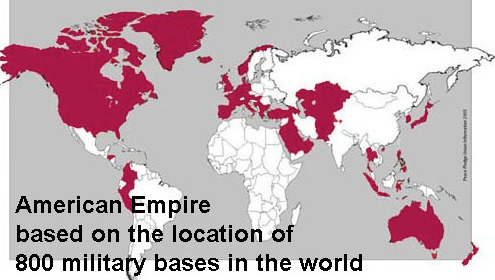 There is something definitely going on from a more esoteric perspective with Europe, related to the Levant and the US by extension, and the sense that emerges is that there is an ancient karma that is working out which far predates our historical record. It also points to all that we have examined this year in terms of shifting alliances and emerging blocs, the collapse of empires, the end of one astrological Age and the transition to the next, etc. To put a finer point on it, the age of hegemony/empire is ending, whether it be a military empire, economic or of some other measure. That process has accelerated greatly over the past century. And, in terms of 100-year cycles, we are seeing a repeat of what we saw 100 years ago – sort of a finishing of old business/settling of old scores. That cycle resulted in a world war. It did not have to then, nor would it have to this time around. But that cycle also points to emerging consciousness, the mixing of races, and then we have the entry of a new ray force (4th ray), for which the old order must make way, and so forth. It is a very complicated mix of factors.
There is something definitely going on from a more esoteric perspective with Europe, related to the Levant and the US by extension, and the sense that emerges is that there is an ancient karma that is working out which far predates our historical record. It also points to all that we have examined this year in terms of shifting alliances and emerging blocs, the collapse of empires, the end of one astrological Age and the transition to the next, etc. To put a finer point on it, the age of hegemony/empire is ending, whether it be a military empire, economic or of some other measure. That process has accelerated greatly over the past century. And, in terms of 100-year cycles, we are seeing a repeat of what we saw 100 years ago – sort of a finishing of old business/settling of old scores. That cycle resulted in a world war. It did not have to then, nor would it have to this time around. But that cycle also points to emerging consciousness, the mixing of races, and then we have the entry of a new ray force (4th ray), for which the old order must make way, and so forth. It is a very complicated mix of factors.
The US now holds the premier position of the expression of the 6th ray in the personality, that ray rapidly passing out, and because of that its potency on the world stage is waning. We see it with the dogged insistence on sticking to old ideologies which no longer work. As such, Washington as the governing body just cannot seem to put a foot right, rapidly leading to the loss of its dominance in world affairs. We see idealism and its attendant militant fanaticism gasping its last breaths, with a sense of panic setting into the halls of power in the US establishment and with the Atlanticist factions in European governments. In the US, it is resulting in threatening behavior, now without any gloss of pretense, the 6th ray “my way or the highway” attitude, “do as I say, not as I do”, and so on. But this is all acting according to cyclic law, and is a thing to be celebrated by more forward-thinking people rather than being feared.
The one thing about which we can be assured is that the forces that hold to that ray – ideologues, fundamentalists in all faiths, jihadists, Zionists, super-patriots, evangelicals, nationalists and a host of others – are on their way out, even though they might appear to be rising temporarily. These are gradually being replaced by a more pragmatic type, one more disposed toward finding order based in mutual need and respect instead of a faith-based homogeneity. It will take decades yet for the latter to take a stronger hold but it is slowly waxing in strength, as witness by the growing influence of the East and their approaches. So, there is a ancient connection between the Levant and Europe, and it will be fascinating to watch what happens with the Syrian refugees in Europe, with the Levant in general, with Russia connecting Eastern and Western modes of thought and living, and all the Taurean connections mentioned previously.
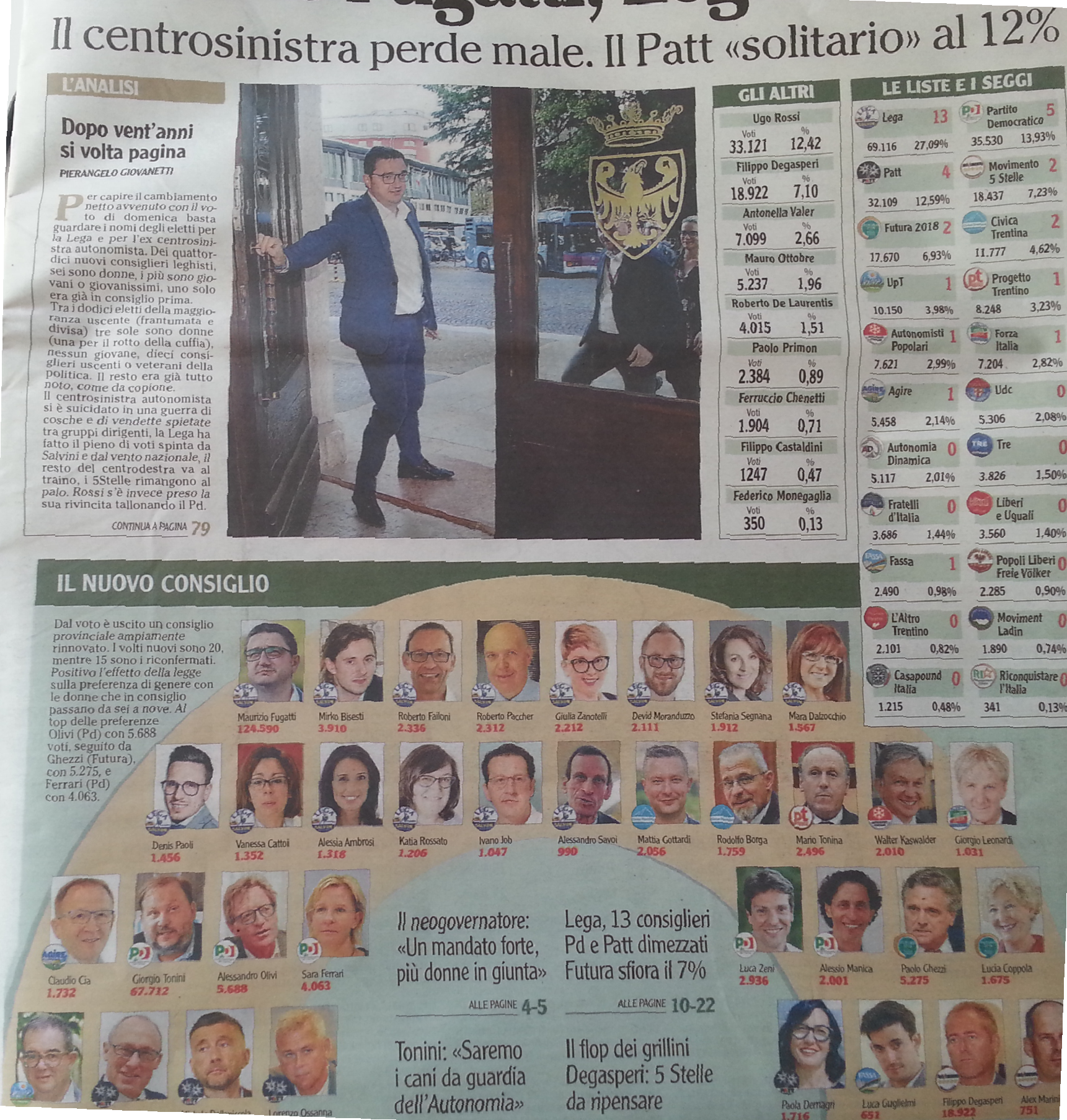 The Italians: Back to present-day Europe then, we just had provincial elections here in Trentino-Alto Adige in northern Italy (where I live). If it is any indication of the public mood, the Lega Nord party won big in this election, whereas the center left party (Pd, party of Matteo Renzi, ex PM) lost resoundingly, with only half the votes of La Lega. Elections here are always entertaining at least, with a smorgasbord of parties from which to choose. The Pd Party has been the champion of neoliberal economic policy and ‘liberal democracy’ in recent years, and had done little to relieve the economic stress on Italians, nor had they stood up to Brussels. The reason the Lega Party did so well is because they are seen to be standing up for the average Italian. Of all the EU countries, Italy has the least favorable view of the EU, with under 50% in favor. It is not difficult to see why. The Italians are in a similar situation to what Greece faced in the years before their bailout by the IMF and ECB. However, the Italians are determined they are not going to go down that path and are standing firm in their challenge to Brussels.
The Italians: Back to present-day Europe then, we just had provincial elections here in Trentino-Alto Adige in northern Italy (where I live). If it is any indication of the public mood, the Lega Nord party won big in this election, whereas the center left party (Pd, party of Matteo Renzi, ex PM) lost resoundingly, with only half the votes of La Lega. Elections here are always entertaining at least, with a smorgasbord of parties from which to choose. The Pd Party has been the champion of neoliberal economic policy and ‘liberal democracy’ in recent years, and had done little to relieve the economic stress on Italians, nor had they stood up to Brussels. The reason the Lega Party did so well is because they are seen to be standing up for the average Italian. Of all the EU countries, Italy has the least favorable view of the EU, with under 50% in favor. It is not difficult to see why. The Italians are in a similar situation to what Greece faced in the years before their bailout by the IMF and ECB. However, the Italians are determined they are not going to go down that path and are standing firm in their challenge to Brussels.
Brussels has become threatening, which is a sign of weakness, really. And the panic merchants are already harping on the doom that Italy faces. People here are not so worried and are holding their ground. The leadership of the Italian coalition government are calm and resolute in their stance, and as a result Salvini’s Lega Nord has now surpassed Cinque Stelle (Five Star) in popularity. In fact, the longer the government holds fast, the more popular they become. This might alarm many readers, but without this sort of challenge to Brussels, nothing will change in the EU. With Britain about to walk away from EU membership (there may yet be a change there) and with Italy now standing up, the EU leadership is now waking up to the fact that they must change their policies if the EU, or at least the Eurozone, is to stay intact. For their part, the Italians have the right attitude – they want to change the EU by staying in the EU – change from within, which would have been much more effective if Britain had stayed in, too.
There is a much bigger picture here with the Italians, though, evolving behind the scenes, and it involves Russia. This is one reason why we see such hard rhetoric coming out of Brussels and even Washington. In two months, the quantitative easing (QE) ends which has been keeping the Italian bond market afloat (in other words, easing the Italian debt load). That will leave the Italians very vulnerable. It could also help Italy, (Google translate) if handled well. They have approached Russia about buying the Italian bonds, which Russia is not likely to do. However, the move has sent a clear message to the Western financiers. Conti (Italian PM) visited Putin in Moscow on the 23rd of this month for talks on a variety of matters. One of the main items on the list was the lifting of sanctions against Russia for their annexation of Crimea.
Conti stated that the sanctions had gone on for too long, but he would not go so far as to state that they would veto an extension. Italy only posted 24 billion dollars in trade with Russia last year, less than half of what it was before sanctions were put in place. However, economic ties remain strong. If the EU pushes Italy too far regarding its economy, Italy will have little choice but to veto the sanctions and restore its business ties with Russia. Italy must produce its way out of its debt, rather than accepting bailout loans, which would be predatory under current rules. Washington would not be happy with such a result, and would likely sanction Italian companies, only furthering the growing cracks in European/US relations. But there is more to this story.
Italy has expertise in high speed rail, having an extensive high speed rail network. Its esoteric motto is, “I carve the paths”. The Romans were the ancient road builders, many of which are still in use in Europe. Italy is carving paths in more ways than one. Russia needs such expertise to develop its infrastructure, and in that regard Italians have launched a new factory to produce high-voltage electric motors – such as those used in high speed trains – designed by Italy's Nidec company for Russian industries. The factory was built by Nidec in Russia. Russia also now has an alternative to the SWIFT system to which it is inviting other states to use. The writing is on the wall for Italy, Europe and the US. Unless there is a coup in Italy, and if the EU leadership and the US continue along the same lines, Italians will embrace the new system, sidestep the sanctions and fall out with the Eurozone. This is the sort of scenario that is building toward the crises I see for the EU early in the next decade.
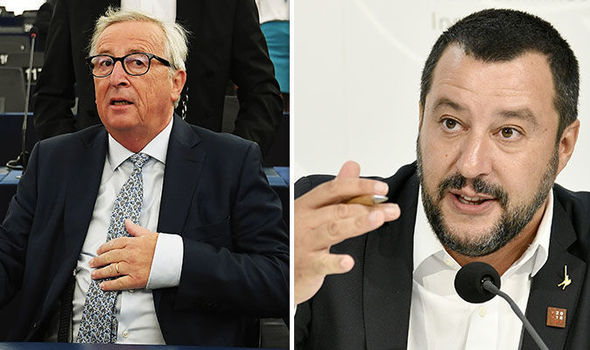 As for the Eurozone itself, the woes of the union are clear enough. When the QE of the Italian bonds ends in December, the Eurozone chart shows a solar arc of Pluto to the Eurozone (EZ) IC, opposing the 10th house (sitting leadership), and square to the horizon of the chart, with transiting Saturn on the EZ Sun. Something is going to give. This period will mark a major milestone in EZ and EU history, the latter by extension. It is a setup that speaks of extremely great pressures from others, possible separations, stubbornness and self-will, all of which we are seeing, and on all sides. The Washington establishment and financial interests will be exerting considerable pressure from their side for Italy to keep the Russian sanctions in place, to march in step with the Eurozone and to maintain good relations with their neighbors. But the Italians are not likely to do so with their present leadership. They see that far more can be done to advance the cause of Europe by making business deals with Russia rather than antagonizing them, and they also are very clear that they need to be unencumbered in their trade relations if they are to pull themselves out of debt. For a bit more insight into this, you can have a look here, here and here.
As for the Eurozone itself, the woes of the union are clear enough. When the QE of the Italian bonds ends in December, the Eurozone chart shows a solar arc of Pluto to the Eurozone (EZ) IC, opposing the 10th house (sitting leadership), and square to the horizon of the chart, with transiting Saturn on the EZ Sun. Something is going to give. This period will mark a major milestone in EZ and EU history, the latter by extension. It is a setup that speaks of extremely great pressures from others, possible separations, stubbornness and self-will, all of which we are seeing, and on all sides. The Washington establishment and financial interests will be exerting considerable pressure from their side for Italy to keep the Russian sanctions in place, to march in step with the Eurozone and to maintain good relations with their neighbors. But the Italians are not likely to do so with their present leadership. They see that far more can be done to advance the cause of Europe by making business deals with Russia rather than antagonizing them, and they also are very clear that they need to be unencumbered in their trade relations if they are to pull themselves out of debt. For a bit more insight into this, you can have a look here, here and here.
Brussels should not underestimate the Italians. I don’t say this because I live in Italy. The Italian chart shows it quite clearly. The chart for the Italian Republic shows a Sun/Uranus/Orcus stellium in Gemini trine to Jupiter, the latter in Libra in the 11th house. This is a very tough, albeit fluid and changeable combination. They will come through this and thrive. Presently, they have a solar arc of Mars aspecting their Sun/Moon midpoint, indicating successful unions, a fighting spirit, optimism and fruitful outcomes, unlike the Eurozone. And the Italians have made many friends and know how to work in group fashion. They have a long cultural history of this, as well as knowing very well the inside workings of empires, which for them has included the Roman Empire and the Catholic Church. With their Leo soul, they will also have a growing place of leadership within the European community, not less. The Spanish are also watching these proceedings very closely as well and they have very similar energies to Italy, as well as strong cultural relations. Watch Italy and Spain very closely through the coming months, especially the former’s relationship with Russia. The key to solving Europe’s economic troubles is intertwined with Russia, like it or not, and if Monnet were still alive, he would likely advocate for economic ties with Russia, given that Russia no longer threatens European security. Russia does, however, pose a threat to American economic superiority, which is more the fault of US policy than of Russian efforts, and that is the really the only reason we see the sanctions and so forth against them. This brings us finally to the UK.
The immediate future of the UK: If the UK makes a hard exit from the EU, their union may well fracture. Ireland and Scotland want to stay in the EU, although Ireland is a sovereign state. But there are problems with the Northern Ireland/Republic of Ireland border. If Scotland exits the UK, that would leave England, Northern Ireland, Wales and their associated islands on the outside in a weakened position. Their bargaining power would be considerably reduced. In a way, the UK’s position is similar to that of the EU in terms of fracturing. With the growing protests in the UK against Brexit, we may well see a rupture at the top in UK politics, a leadership spill or something similar between now and the end of this year. This is indicated by transiting Saturn across the IC and conjunct the UK Sun, with Pluto opposite the UK Moon, the latter ruling the 10th house. What is shows is a firm opposition (4th house and Saturn showing restrictions to the 10th) to current government (10th house) policy with a possible fall for the government. Pluto indicates major separations and endings.
Britain and Brexit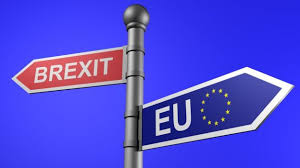 : The British have always had a sort of stand-offish approach to the EU, which can be very typical of a Libran personality. There is a consistent theme that has run through British politics regarding the EU, pretty much universal and especially among conservatives and banking interests, which was given voice in a leaked paper from 1950, published by the Labour Party in Britain, reading as follows:
: The British have always had a sort of stand-offish approach to the EU, which can be very typical of a Libran personality. There is a consistent theme that has run through British politics regarding the EU, pretty much universal and especially among conservatives and banking interests, which was given voice in a leaked paper from 1950, published by the Labour Party in Britain, reading as follows:
The European peoples do not want a supra-national authority to impose agreements. They need an international machinery to carry out agreements which are reached without compulsion.
The rejection of common rules, and in particular majority rule in relations between peoples, was clearly affirmed; and so were two fundamental principles of British policy at that time. First, no change in the relations between Britain and continental Western Europe must diminish Britain’s role as nerve-centre of the Commonwealth and banker to the Sterling Area. Secondly, there could be no delegation of power to a supranational authority which might interfere with Britain’s Socialist experiment.
In every respect except distance we in Britain are closer to our kinsmen in Australia and New Zealand on the far side of the world, than we are to Europe. We are closer in language and in origins, in social habits and institutions, in political outlook and in economic interest! (Monnet, Memoirs, p. 314)
Given that Britain colonized Australia and New Zealand, those last lines are rather telling, and read as a political dodge of British integration into the EU. Even when Britain entered the EU it chose to keep its currency, not that there is anything wrong with that. But, for Britain to have adopted the euro it would have had to open itself to some scrutiny and set aside some of its sovereignty in economic matters, a thing that the British public in general has roundly rejected. Monnet’s views of the European supranational state, though, were pretty specific:
The Schuman proposals are revolutionary or they are nothing. Cooperation between nations, while essential, cannot alone meet our problem. What must be sought is a fusion of the interests of the European peoples and not merely another effort to maintain an equilibrium of those interests through additional machinery for negotiation. [italics reflecting the British Libran personality]
The Schuman proposals provide a basis for the building of a new Europe through the concrete achievement of a supranational regime within a limited but controlling area of economic effort. The indispensable first principle of these proposals is the abnegation of sovereignty in a limited but decisive field and in my view, any plan which does not involve this indispensable first principle can make no useful contribution to the solution of the grave problems that face us. (Memoirs, p. 315)
“…a limited but decisive field…” Not an overarching, all-controlling super-state as advocated by Burnham, Wisner, the Bilderbergers and the like in the US. However, he does speak of economics as being the binding factor and controlling the union of the states. And this is precisely what is causing the major part of the trouble within the EU. Scorpio is connected with international banking, after all.
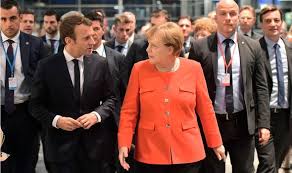 European personalities: The continent under its current pressures is falling back into old personal habits instead of sticking by the essence of the EU. The UK is seeking to maintain the balance of power in the continent, fearing too much power is in the hands of Brussels. Maybe so. In a way, she had always sat on the fence when it came to the EU, keeping a sense of distance. France under Macron wants to dominate the continent, or at least be a key leader. Germany is a little mixed. On the one hand with its 1st ray personality it seeks to retain control, at least financially, but its populace is overwhelmingly in favor of the EU, but does not appreciate the fact that they have to bankroll bailouts to debtor nations. Some people see the Germans as wanting a sort of 4th Reich in Europe, but this idea is rather insulting to the German psyche. It is also untrue. Germany is actually too much influenced by the US, as is much of Europe. Washington wields considerable influence over European affairs through finance and trade, as seen by the recent caving in to Trump’s demands for Germany to accept American LPG, this potentially lessening Russia’s share of the market.
European personalities: The continent under its current pressures is falling back into old personal habits instead of sticking by the essence of the EU. The UK is seeking to maintain the balance of power in the continent, fearing too much power is in the hands of Brussels. Maybe so. In a way, she had always sat on the fence when it came to the EU, keeping a sense of distance. France under Macron wants to dominate the continent, or at least be a key leader. Germany is a little mixed. On the one hand with its 1st ray personality it seeks to retain control, at least financially, but its populace is overwhelmingly in favor of the EU, but does not appreciate the fact that they have to bankroll bailouts to debtor nations. Some people see the Germans as wanting a sort of 4th Reich in Europe, but this idea is rather insulting to the German psyche. It is also untrue. Germany is actually too much influenced by the US, as is much of Europe. Washington wields considerable influence over European affairs through finance and trade, as seen by the recent caving in to Trump’s demands for Germany to accept American LPG, this potentially lessening Russia’s share of the market.
In closing, perhaps a picture has emerged from all this discussion. We might summarize the essence of the problems for the EU and their solutions as follows:
- Europe needs to be more in control of its own destiny, free to a great extent of Washington and even British policy
- Inroads need to be made for business ties with Russia and Iran, building trust gradually over time
- Alternatives need to be found to bypass the US dollar if necessity dictates, making for a more equitable exchange between nations
- Neoliberal economics, ECB policy and unregulated globalism as it is needs a serious rethink
- Europe must produce its way out of its economic problems, reducing trade barriers, such as sanctions
- Europe needs to re-examine the need for NATO, and this means making approaches and talks with Russia, and recognizing Russia’s cultural and historical connections with Europe, as well as its potential as a responsible economic partner and neighbor. A grave danger would thus be averted.
- Recognizing that Europe and Asia in effect form a super-continent and thus potentially the greatest economic powerhouse in the world, international relations can begin to be re-thought along more realistic lines, gradually abandoning old colonial, imperial models that have dominated Western policy and relations for centuries
What do we have, then? On the one hand, most Europeans are quite happy with the EU. They like the sense of unity, of the brotherhood of nations, the ability to travel freely between states and the security it provides. On the other hand, there is the minority that worry about losing their culture, about immigrants taking over, about the super-state taking their nation’s sovereignty. They are not worried without cause, but this can be changed. The Italians are making a concerted effort at it now. Their efforts might come undone, but if they succeed, even in small part, it will start a trend that will come to fruit early in the next decade. This has the two powerful factions vying for control, mentioned previously – Atlanticist and nationalist – quite concerned. So, the game is on in Europe. Change will come, hopefully to the benefit of the citizens of the EU. There will be quite a lot of propaganda in the various media outlets and on the internet calling for keeping the status quo and talking about how dangerous such moves by the Italians and those of like mind are for the security and integrity of the EU. The European Union is going through an internal battle, quite the Scorpio story. We’ll hold the thought that the story will have a good ending – for the union and the people in it. The prosperity of a united Europe people like Monnet envisaged is still possible, and while Europe has grown in strength over the years, Europeans must claim their own destiny, apart from Washington or any other outside interest if such a future is to be secured and ensured. Happy birthday, EU!
Malvin Artley
26 Oct 18
Picture credits:
EU and currencies: http://geoawesomeness.com/top-30-maps-charts-explain-european-union/
Chart: author, graphics from Esoteric Technologies
Oligarchs: http://pavelpodolyak.blogspot.com/2009/06/rich-contributing-most-to-tax-revenue.html
Warsaw, 1947: https://www.vintag.es/2014/02/post-war-photos-of-warsaw-in-colors-in.html
EU/CIA: https://www.sott.net/article/268442-United-States-of-Europe-EU-was-created-by-the-CIA
Monnet: https://www.thefamouspeople.com/profiles/jean-monnet-6868.php
Bilderberg: https://www.bbc.com/news/magazine-33067655
Mood is up: https://www.bimco.org/news/market_analysis/2017/20170420_marcosmoo_2017-02
NATO and aggression: https://extrasensoryprecepts.blogspot.com/2015/07/former-us-army-psychological-warfare.html
Election interference: https://www.politifact.com/truth-o-meter/article/2017/dec/12/2017-lie-year-russian-election-interference-made-s/
Wes Mitchell: https://useu.usmission.gov/a-s-wess-mitchells-remarks-at-carnegie-europe/
Syrian refugees: https://www.nationalreview.com/2015/09/give-me-your-tired-your-poor-not-your-terrorists-ian-tuttle/
Europa: The Abduction of Europa, Johann Heinrich Tischbein the Elder (1722–1789)
American empire: https://misesuk.org/2016/09/15/thoughts-on-the-american-empire/
Italian elections: author, snapshot from “L’Adige” newspaper
Brexit, EU: https://www.bbc.com/news/uk-politics-32810887
Merkel, Macron: https://www.express.co.uk/news/world/864910/Emmanuel-macron-Angela-Merkel-EU-reform-France-Germany







